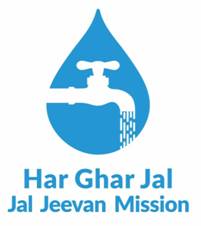New Delhi: To ensure safe & potable tap water supply to every household, the Government has provided piped water supply connection to 60.52 lakh (68.3%) rural households in Odisha.
While replying to a question of BJD MP Sasmit Patra, Union Minister of State (MoS) for Jal Shakti Rajeev Chandrasekhar said at the time of announcement of Jal Jeevan Mission (JMM) in August 2019, only 3.11 lakh (3.5%) rural households were reported to have tap water connections in the State of Odisha.
So far, as reported by the State as on December 5, 2023, additional 57.41 lakh rural households have been provided with tap water connections under JJM. Thus, out of 88.64 lakh rural households in the State, approximately 60.52 lakh (68.3%) households are reported to have tap water supply in their homes, he said.
As per the reply, Nuapada tops the district list in the State where over 98.58 percent of households have a tap water supply, followed by Keonjhar (97.76 per cent), Bhadrak (91.41 per cent), Deogarh (85.99 pc), Boudh (82.73 pc), and Jharsuguda (81.12 pc).
Shri Chandrasekhar said Government of India is committed to make provision for safe & potable tap water supply in adequate quantity, of prescribed quality and on a regular & long-term basis to all rural households in the country.
Towards this end, the Government of India launched the Jal Jeevan Mission (JJM), to be implemented in partnership with states, in August 2019. Drinking Water is a state subject, and hence, the responsibility of planning, approval, implementation, operation, and maintenance of drinking water supply schemes, including those under the JJM, lies with State/UT Governments. The Government of India supports the States by providing technical and financial assistance, he added.
A number of steps have been taken to plan and implement JJM in the whole country including Odisha, with speed, inter alia, including joint discussions and finalization of saturation plans and annual action plans (AAP) of States/ UTs, regular review of implementation, workshops, conferences, webinars for capacity building, training, knowledge sharing, field visits by multidisciplinary team to provide technical support, etc.
Further, a detailed operational guideline for the implementation of JJM; Margdarshika for Gram Panchayats & VWSCs to provide safe drinking water in rural households and Guidelines on a special campaign to provide piped water supply in Anganwadi Centres, Ashramshalas and schools have been shared with States/ UTs to facilitate planning and implementation of Jal Jeevan Mission.
For online monitoring, JJM–Integrated Management Information System (IMIS) and JJM–Dashboard have been put in place. Provision has also been made for transparent online financial management through the Public Financial Management System (PFMS).


